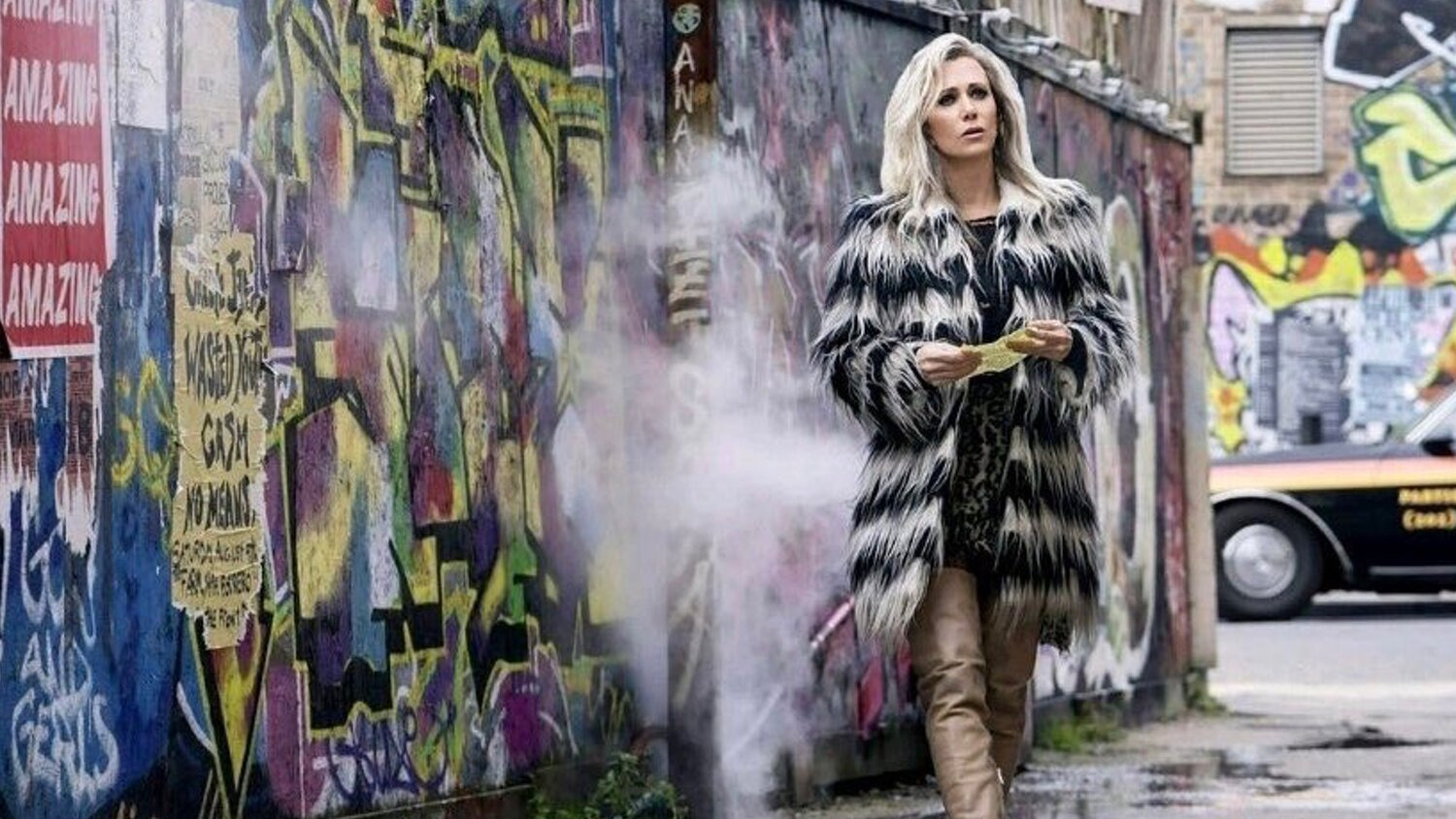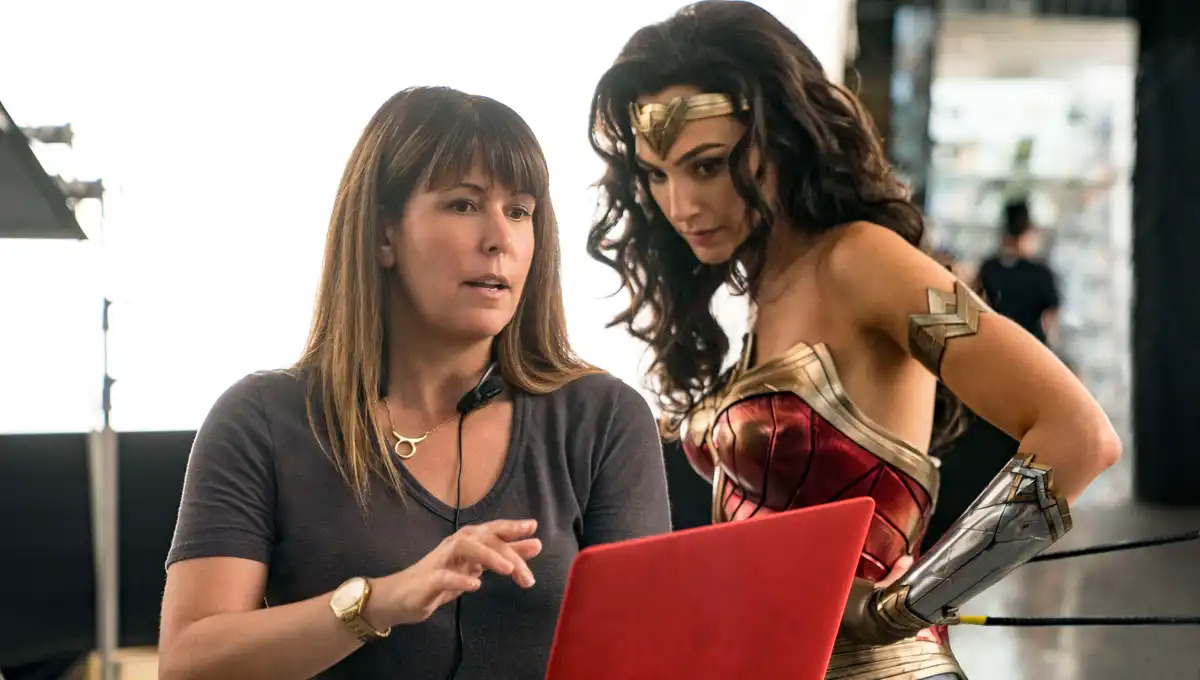When approaching WONDER WOMAN 1984, now sunsetting its controversial day-and-date hybrid release on both HBO Max and in remaining theaters, I was simply driven by a single thought: I only care about Kristen Wiig as Cheetah. But by the end of Patty Jenkins’ latest romp, it was more than apparent who was getting Che(etah)ated: audiences. There are far more harrowing and egregious problems with DC’s nightmare cash cow than Wiig’s villain. The “moral” is questionably executed at best, and Diana Prince (aka Wonder Woman) is still famously very boring, but these both serve as runners-up to the notion that everything Patty Jenkins and known sicko Zack Sn*der wanted from a WONDER WOMAN sequel, but is abhorrently missing in the final product, was right under their nose.
The film opens on quite possibly the longest introductory sequence ever. Diana, as a young girl, toils through Herculean trials at what is seemingly a seminal part in her Amazonian training, deciding to cheat to beat her competitors (literal grown women). Diana’s karmic debt comes back when her aunt, Antiope, realizes what she’s done and body slams her, rendering her unable to win. She explains that you’re not “ready to win” if you cut corners—your success must come from the integrity of doing it right. The sentiment of Antiope’s fable is not trite or confusing, it just has no correlation to the next two hours; the moral tries to present itself in the film’s main villains, Pedro Pascal as Max Gold, a failed oil mogul fueled, like the majority of those from the decade, by gluttony, and Kristen Wiig as Barabra Minerva, a nerdy anthropologist who’s about as interesting as black gum cemented into the sidewalk, both of them “losers” in their own way. Retribution, however, is on the horizon for the pair when the ensemble comes in contact with a stone that can grant any person’s wish. Not realizing its power, Barbara and Diana earnestly profess their wishes: Diana wishes for Steve (Chris Pine) back and Barabra wishes to be more like cool, hot, and collected Diana. Max Gold takes it to the nth degree and wishes to literally become the stone, therefore capable of granting anyone’s wish.

The second act is when things are supposed to heat up, the key words being “supposed to,” as Patty Jenkins actually forgot to turn the dial: the whole movie stinks of butane. Diana gets some Pine peen, Barbara beats up an assaulter, and Max is scamming billions out of the world; it seems everyone’s wish is granted, except the audience’s. The movie is more than an hour in at this point and no one, not a single soul, gives a rat’s ass about any of these characters. Lackluster sets with sensationalized ‘80s decor and bad lines make it impossible to stop scrolling through TikTok while watching. Driven by moral compromise, Diana and Steve find themselves en route to stop Max from swindling a deal with Egyptian royalty—of course, Egypt abolished their monarchy in 1952, but whatever. In the film’s action centerpiece, Diana saves some Egyptian children from a cavalcade of military vehicles (I guess Gal Gadot is okay with helping Arab children as long as they’re not Palestinian). Remember when Kristen Wiig was in this movie? Steve and Diana are about to apprehend Max when Barbara steps in to stop them. Armed with newfound powers, Barbara no longer wants to be the shy pushover she was, finally emerging as the film’s second villain, Cheetah, in what is arguably one of the most disappointing entrances in all of cinema at large. CATS debuted the same calendar year, and Patty Jenkins is saying none of John Napier’s designs were worth referencing? We want DESIGNING WOMEN in fake fur, we want Shania Twain in “That Don’t Impress Me Much,” not an “everything must go” sale at Wet Seal.
Cheetah’s debut is a major domino in a series of oversights that make up WONDER WOMAN 1984’s collapse. Diana has Steve, but in order to defeat Max, she, and everyone else, must renounce their wish. Renouncing her wish, of course, means saying goodbye to Steve after finally reviving him from the dead. In becoming like Diana, Barbara has lost sight of who she truly is; Max has become so power hungry that he’s barely human. WONDER WOMAN 1984 is victim to the endemic problem with this property: our hero is boring. Diana Prince is literally perfect. She’s gorgeous, strong, smart—the whole altruistic little package. Yet in every depiction, from Carter to Gadot, she never accepts any flaws. WONDER WOMAN 1984 tries to say that she does, that she can be selfish. It’s not enough that her flaws exist, it needs to be good that she has flaws. Barbara, even when she’s revealed as the next Jellicle choice, doesn’t learn that it’s okay to be nerdy and that some people aren’t worth the attention. Diana doesn’t learn that, while wanting to keep Steve is a normal yearning of being a living being, it’s not okay to physically keep him. Everything that WONDER WOMAN 1984 wanted to do existed on a separate track to whatever actually hit our screens.

The film, by all accounts, is sloppy. Not just because of Asteria’s unblended Glossier Cloud Paint in the battle scene, not just because of the gaudy sets, not just because of lazy payoff after unearned revelation, and certainly not just because of the hollow feminism. Why did Diana learn to fly only after Steve gave her the strength to do so? Why is it wrong for Kristen Wiig to protect herself against an abuser who assaulted her? Hollywood continues to manufacture surface-level stories about white women and sell it en masse to masses who cannot relate to them. To all the femmes, skip this one, order in pizza, and watch MISS CONGENIALITY instead: it’s much more fulfilling.















Comments